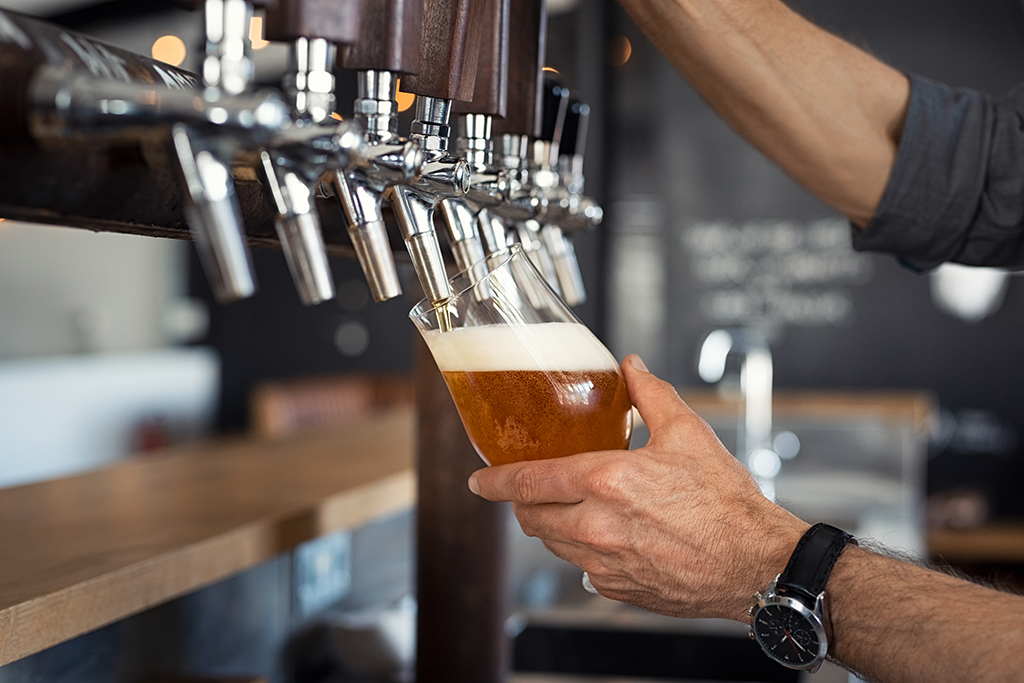On 28 August 2024, the Australian Taxation Office (ATO) issued a draft of its Excise Determination ED 2024/D2 (Draft Determination) outlining the Commissioner’s views on the definition of ‘beer’ for the purposes of excise duty. The effect of this draft guidance is to narrow the definition of ‘beer’, meaning that alcoholic beverages which do not fall within that definition will be subject to higher rates of excise duty.
The Draft Determination throws into question whether numerous beer-based products, such as seltzers, lagers and craft beers, which have enjoyed lower rates of excise duty, may be subject to tax at higher rates, on the basis that they do not, in fact, constitute ‘beer’. Such an outcome would jeopardise the viability of numerous manufacturers and independent brewers, who are already battling inflationary conditions and a cost-of-living crisis.
Such manufacturers and their advisers will have a headache in trying to decipher the ATO guidance to determine if their product comes within the definition of ‘beer’.
Overview — excise duty and rates applicable to beer
Excise is a tax on petroleum, fuel, tobacco and alcohol (excluding wine) products that are manufactured or produced in Australia.
The Schedule to the Excise Tariff Act 1921 (Tariff Act) sets out the various classifications of alcoholic beverages, which determine the excise rates that those beverages attract. Broadly, the rate of excise duty payable for a particular product depends on its alcohol content.
Beer, for example, is taxed at different rates depending on the volume of alcohol — whether it is low-strength, mid-strength or full-strength. The rate of duty also depends on whether the beer is draught beer (i.e. keg beer), packaged beer or non-commercial beer (e.g. home-brewed beer).
The excise rates applicable to goods which satisfy the definition of ‘beer’ are generally lower than the rates of duty applicable to other excisable beverages.
For instance, beer currently attracts an excise rate of between $2.22 to $36.98 per litre of alcohol (depending on the alcohol content, with higher rates applicable where beer exceeds 3% by volume of alcohol). In contrast, other excisable beverages are taxed at rates of between $58.48 per litre of alcohol (i.e. brandy) and $66.67 per litre of alcohol (other excisable beverages). Additionally, the rates applicable to beer differ from that of other alcoholic beverages in that the first 1.15% of alcohol by volume is excise-free — the intention being to encourage the consumption of reduced-alcohol beer.
Accordingly, it is advantageous for an alcoholic product to come within the definition of ‘beer’, so that the beverage will not be burdened by the increasing excise rates applicable to other products.
Definition of ‘beer’ for excise purposes
The definition of ‘beer’ is set out in the Tariff Act. Broadly, beer means a beverage that:
- is the product of yeast fermentation, being brewed predominantly from cereals;
- is made bitter with hops or other bitters;
- contains not more than 4.0% by weight of sugars;
- has not had artificial sweetener added to it;
- may include other substances (e.g. flavours), but, where such substances contain alcohol, the alcohol must not add more than 0.5% to the total volume of the final beverage;
- may include spirit distilled from beer not more than 0.5% to the total volume of the product; and
- contains more than 1.15% by volume of alcohol.
While the ATO recognises that point (5) of the definition allows other substances to be added to a beverage, because such substances (which contain alcohol) must not add more than 0.5% to its total volume, the ability to do so is not without restriction. The ATO also considers the final product must answer the description of a beer as ‘conventionally understood’.
Accordingly, products which may not satisfy the beer definition include hard seltzers and alcoholic seltzers that are initially brewed from cereal and subjected to yeast fermentation in a similar way to beer, but which in order to be manufactured into a final beverage, have their alcohol content diluted with water or their taste flavoured with fruit juices or other flavourings. The ATO considers that where large volumes of unfermented substances are added to a beer base, the final product cannot be conventionally regarded as a beer.
Added layer of complexity
The Draft Determination adds a layer of complexity for manufacturers who have relied on the reduced excise rates payable on beer products to ensure their businesses remain viable.
According to the ATO, not only must beer satisfy the statutory definition of ‘beer’, but must also be manufactured into a final beverage that is to be consumed as beer as ‘conventionally understood.’ With respect, this latter requirement is not a modern approach in the current environment, where craft brewers have seen significant success in the Australian market, introducing many variants to the traditional beer. Such a requirement with reference to ‘conventional’ beer will also stifle creativity in the development of unique beer products.
The ATO is currently consulting with industry on the Draft Determination, and we are hopeful such consultation will lead to a relaxation in the ATO’s approach.
In the meantime, a hangover cure will not help this headache.
For more information
If you would like to discuss the Draft Determination in respect of the products that you manufacture, or require advice regarding an ATO investigation or audit regarding excise duty on your alcoholic beverages, please contact us.
| Disclaimer: This publication contains comments of a general nature only and is provided as an information service. It is not intended to be relied upon, nor is it a substitute for specific professional advice. No responsibility can be accepted by Rigby Cooke Lawyers or the authors for loss occasioned to any person doing anything as a result of any material in this publication.
Liability limited by a scheme approved under Professional Standards Legislation. © 2024 Rigby Cooke Lawyers |
